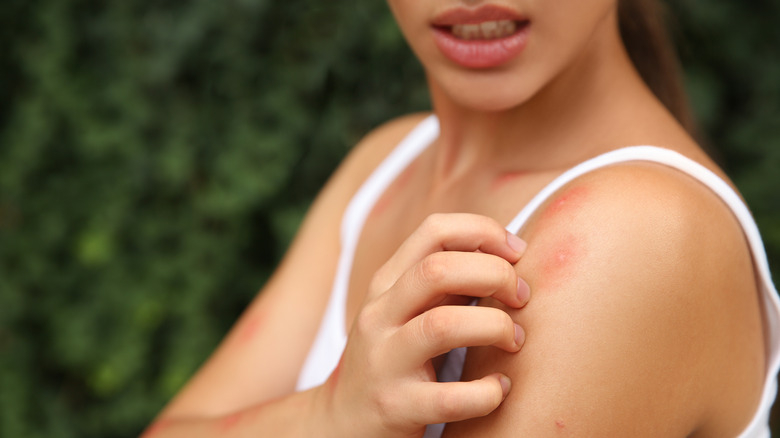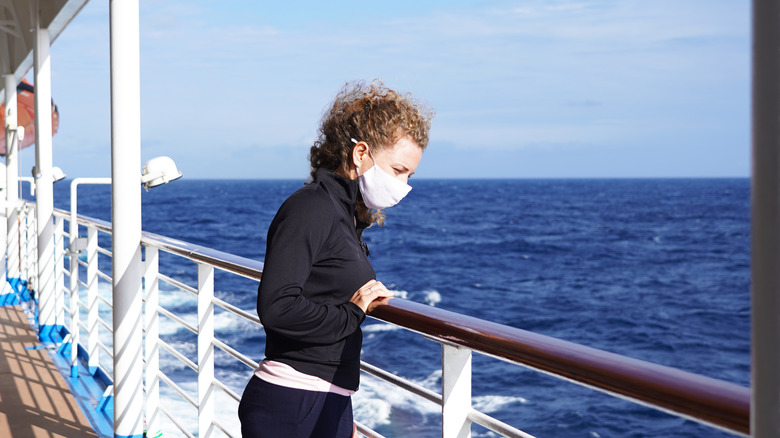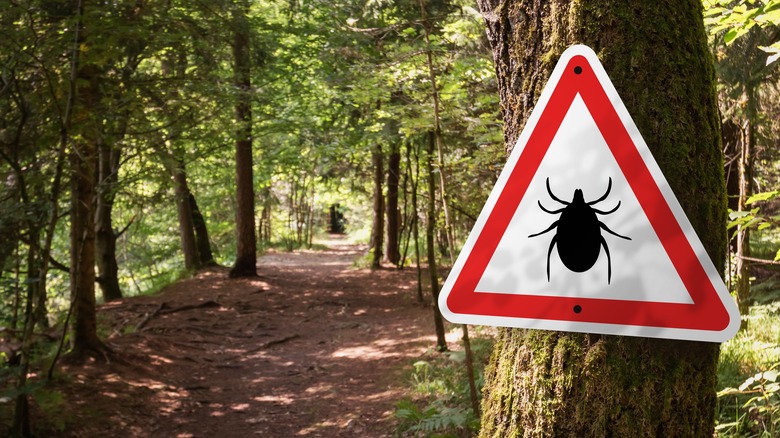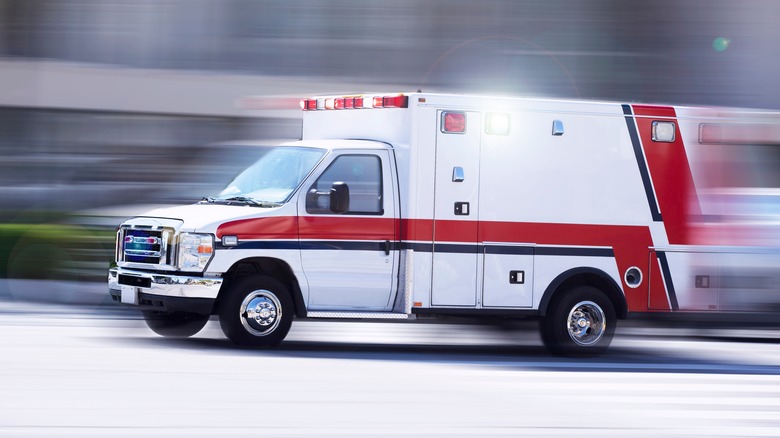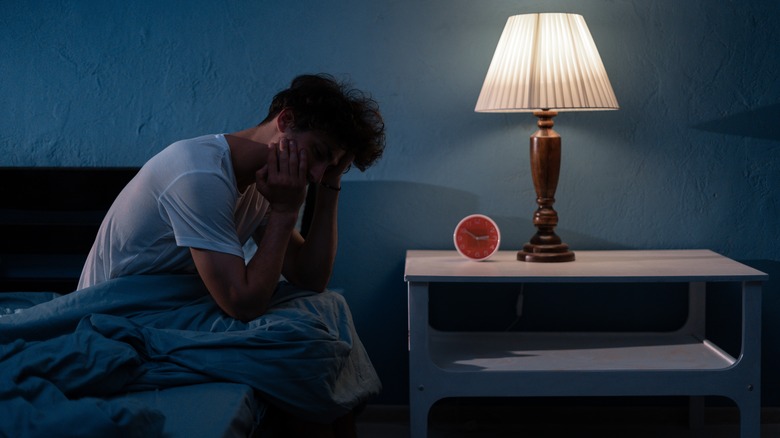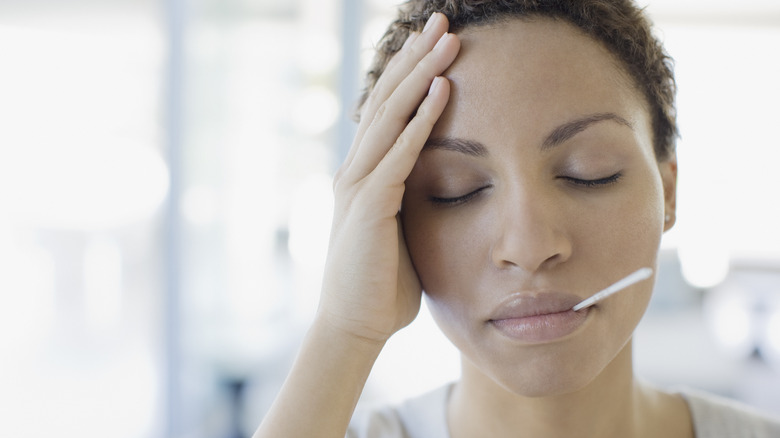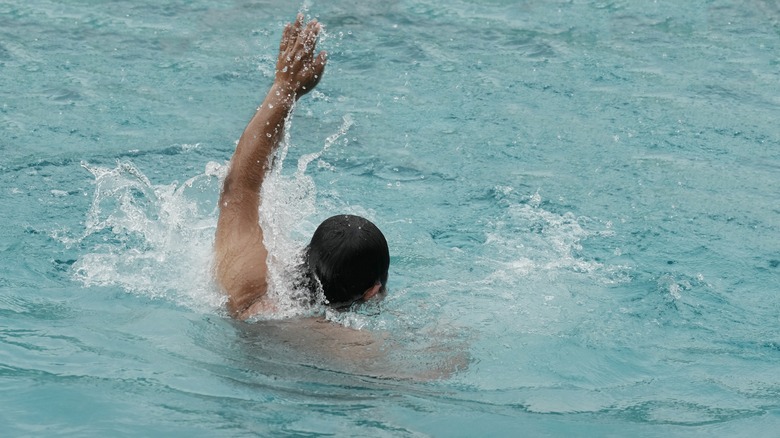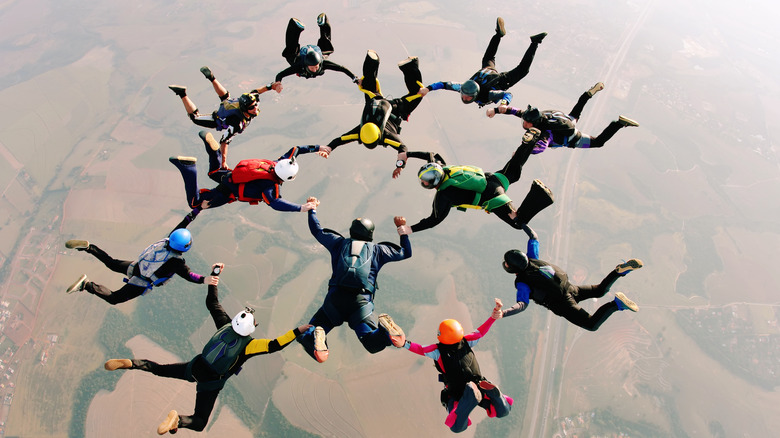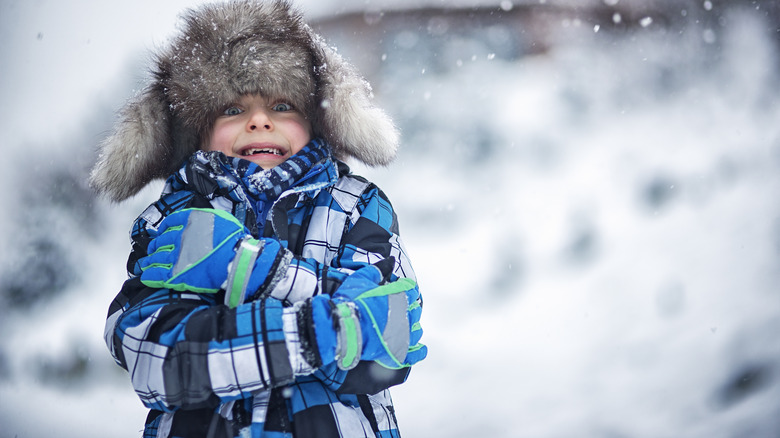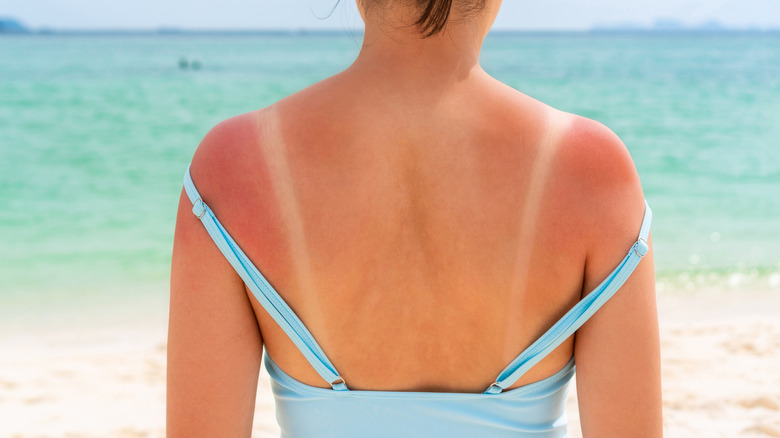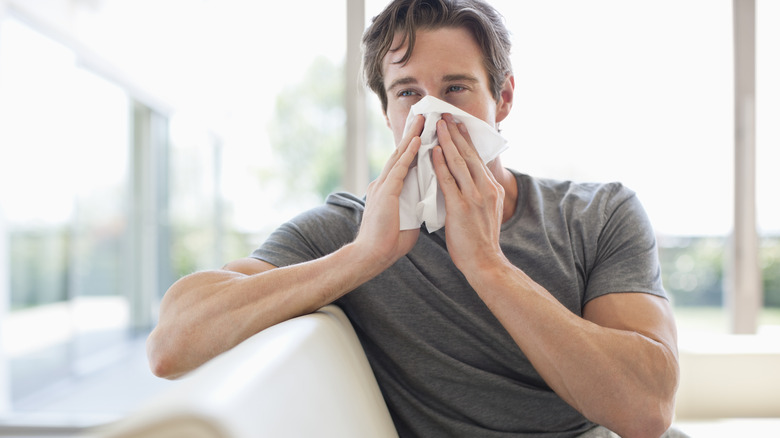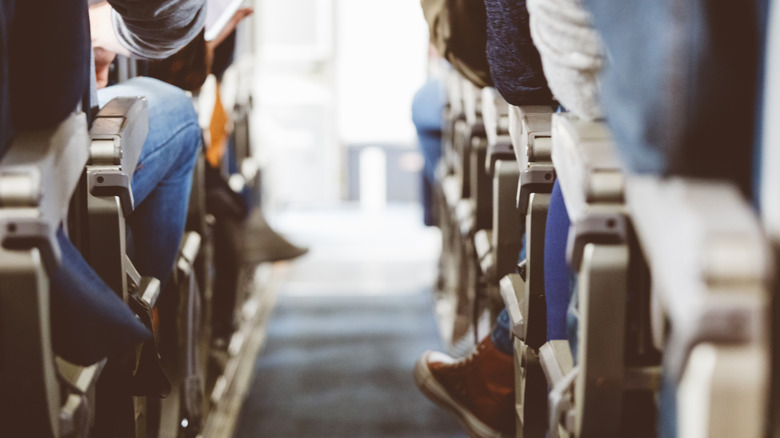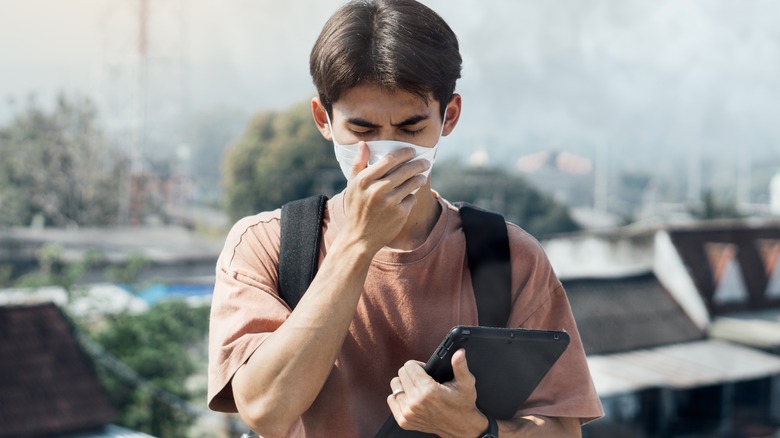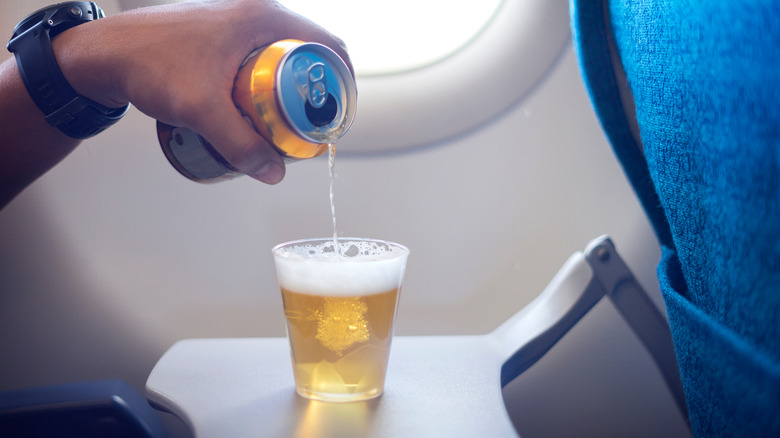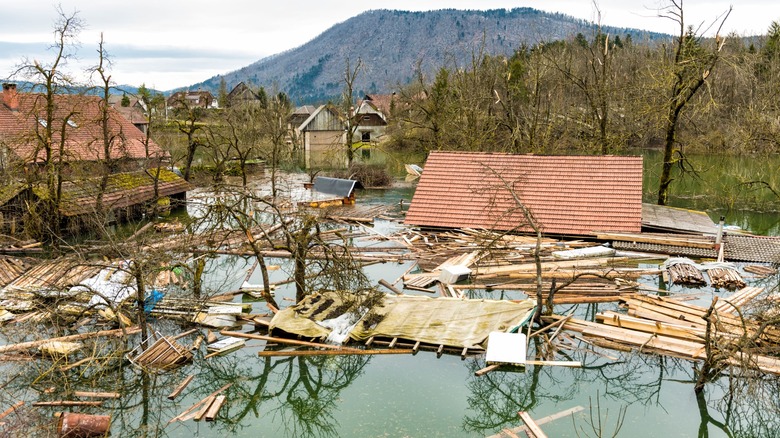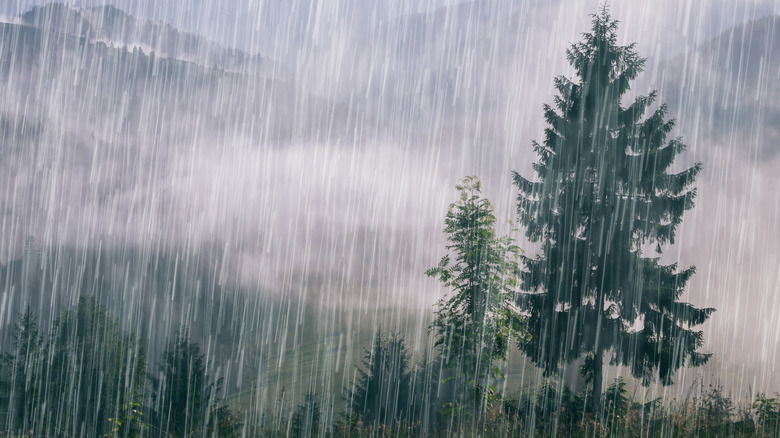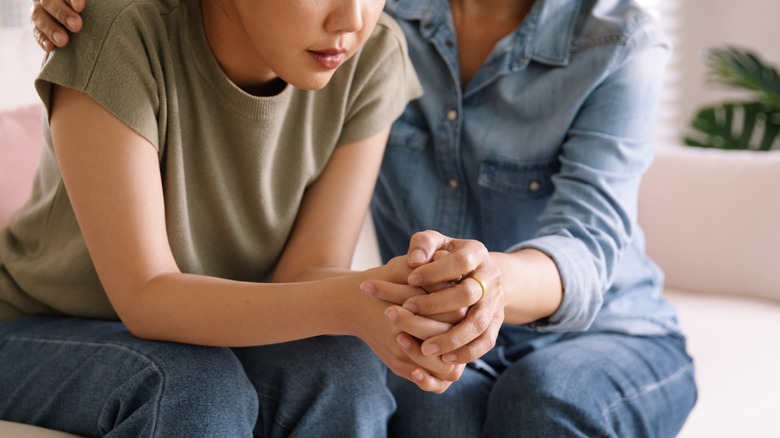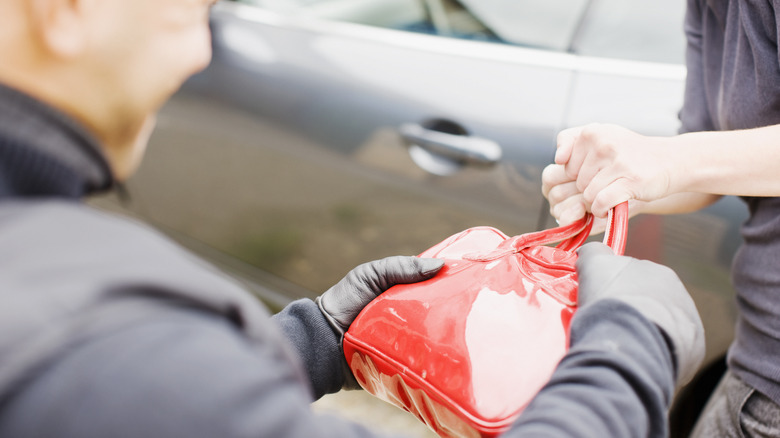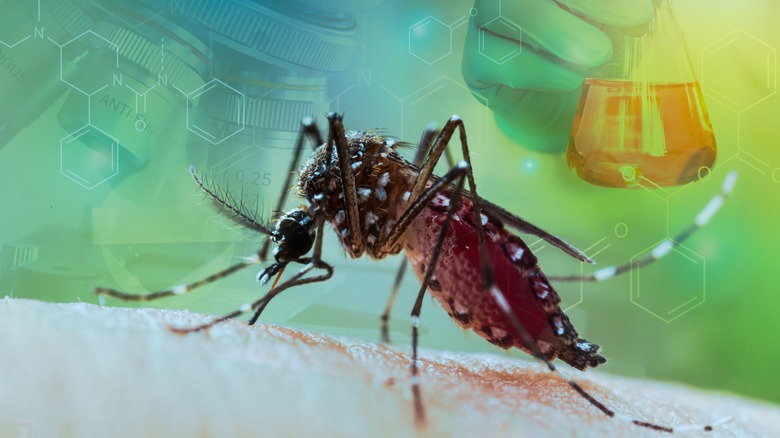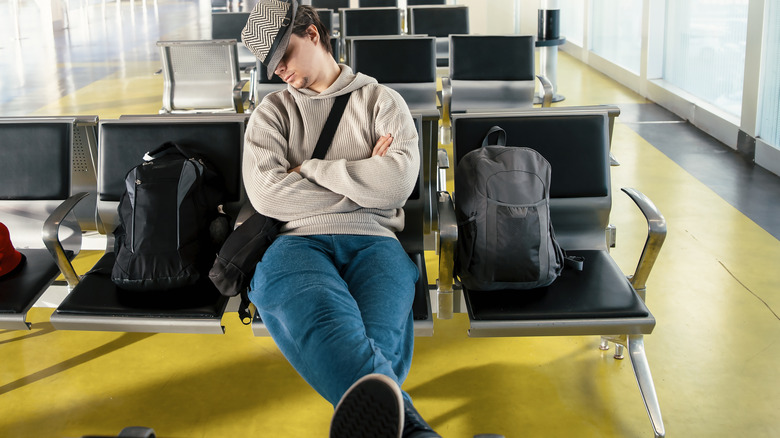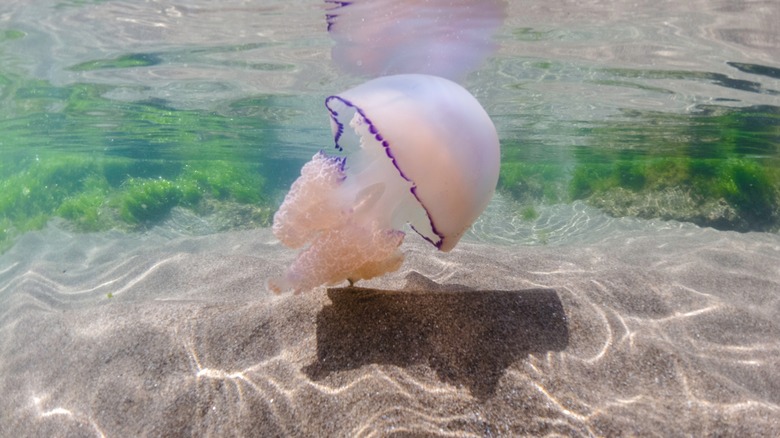29 Health Hazards Of Vacations
Spider venom is designed to kill or paralyze smaller prey, but that doesn't mean it can't do damage to a person. Some species can produce skin lesions or allergic reactions that result in fatalities, according to Britannica. Out of 43,000 spider species in the world, only 30 are responsible for human deaths. Brazilian Wandering Spiders (banana spiders) are the deadliest, and they are found in banana leaves. But don't think they can't get to you. A family in London was evacuated in 2014 after finding hundreds of potentially deadly spiders in a bunch of bananas. About 125,000 people die from snake bites every year, according to the World Health Organization (WHO); Another 400,000 people are permanently disabled or disfigured.
Norovirus
Norovirus is very contagious and can hurt anyone. People can get it from contaminated food or water, or by touching contaminated surfaces. Stomach or intestines, or both become inflamed, leading to stomach pain, nausea, and diarrhea. Norovirus spreads swiftly wherever there are many people in a small area. The CDC has listed many instances of outbreaks on cruises. Just recently, 82 people on such a trip were sickened with the gastrointestinal bug. In 2016, a second cruise ship outbreak was investigated by the CDC's Vessel Sanitation Program (VSP).
Lyme disease
Most cases of Lyme disease are transmitted by deer ticks. In the South, however, a slightly different "Lyme disease" may be transmitted by the Lone Star tick, according to Travel Medicine. The risk of infection in humans increases from late spring through the summer months and into fall. Risk areas include woodland, moorland, parkland, heaths and gardens with wildlife. Areas with deer and sheep are especially risky. Although these animals do not carry Lyme disease, ticks feed on them. Fox News recently reported that the CDC had found new bacteria species that causes Lyme disease. The agency issued a warning that the risk of Lyme Disease has risen. You're more likely to get it if you spend time in grassy and heavily wooded areas where these ticks thrive.
Lack of emergency treatment/services
If you are on vacation and ready to try new things, test your limits and explore new places. However, that increases the risk of dangerous incidents. Depending on where you are, there may be no facilities that can provide immediate medical help. A man in Fiji died in 2012 of food poisoning after no doctors were available nearby and his family received no help in getting an ambulance. International SOS, which provides medical, clinical, and security advice to travel agencies, created a map of countries where medical help is practically non-existent or severely overtaxed. Most of them are in Africa.
Irregular sleep patterns
Jetlag is a common problem. Missing hours accumulate and can lead to disastrous consequences. Travel-induced insomnia, or short-term insomnia, according to WebMD, occurs fairly often. Possible stressors include changes in the sleeping environment such as temperature, light and noise. Traveling to a place that is a few hours ahead of behind is a common cause. According to the Palo Alto Medical Foundation, jet lag can result in anxiety, drowsiness (leading to drowsy driving), forgetfulness, distractibility, decreased performance and alertness, and memory and cognitive impairment. Sleepwalking, although rare, is also a risk. It is associated with fatigue, lack of sleep, and anxiety as well as abuse of sedatives or other medicines, such as some sleeping pills. The latter are in their own category of "dangerous." Common side effects include dizziness, headaches, attention problems, and drowsiness. Some prescription pills have been known to cause erratic behavior, such as sleepwalking.
Dengue fever
Remember the recent Dengue outbreak in Hawaii? The mosquito-borne viral disease is rarely deadly but it will ruin your vacation. Up to 50 million infections occur annually with 500,000 cases of dengue haemorrhagic fever and 22,000 deaths mainly among children, according to WHO. It is a febrile illness that affects infants, young children and adults with symptoms appearing 3-14 days after the infecting bite. Symptoms include mild or incapacitating fever, severe headache, pain behind the eyes, muscle and joint pain, and rash. Dengue fever is most common in Southeast Asia and the western Pacific islands, but it has been increasing in Latin America and the Caribbean as well. There is no vaccine.
Drowning
Imagine kids in pools, in the sea or caught in rip currents. A quick online search will show you dozens of such tragic incidents – a 5-year-old boy drowned on holiday in Spain; a 10-year-old girl died on a Norwegian cruise line ship; a 3-year-old was died after he was found unconscious in a Disney resort swimming pool. In addition, rip currents are known as the ocean's deadliest trick. The United States Lifesaving Association estimates that the annual number of deaths due to rip currents on the country is more than 100. They account for over 80 percent of rescues performed by surf beach lifeguards. While drinking and swimming may sound like fun, it is unsafe. Data from the CDC shows that among adolescents and adults, alcohol use is involved in up to 70 percent of deaths associated with water recreation and about 20 percent of reported boating deaths.
Extreme sports injuries
A failing parachute during an adventurous skydive is not common, but it has happened before. A Texas teen survived 3,500-foot skydive plummet in 2014. More than 4 million injuries have been attributed to extreme sports between 2000 through 2011, according to data collected by the National Electronic Injury Surveillance System. More than 40,000 such injuries occur annually among participants in skateboarding, snowboarding, mountain biking and motocross. The number of serious injuries has increased as participation in extreme sports continues to grow, according to a study.
Hypothermia
Hypothermia is known as nature's "silent killer." A more famous accident is that of country singer Craig Strickland who died of hypothermia after his boat capsized while he was on a hunting trip. More recently, Michael Cavallari, the brother of reality star Kristin Cavallari, died as a result of the condition after a possible car accident. Extreme weather can catch you unprepared almost anywhere – camping, hiking, hunting, skiing, and rock/ice climbing. The US Travel Insurance Association advises people to dress adequately, pack enough supplies (extra clothes, matches, candles) and tell friends about your exact traveling plans.
Skin damage
Extreme sunburn is a year-round problem. Sun damage doesn't take a winter break even when it's cloudy. Sunburns in the mountains are common, the Alpine Institute says. In fact, UV radiation is more intense in alpine regions than at sea level. Frostbite is also a considerable risk. You may develop numbness to the skin and sensitivity to the cold. Severe frostbite can cause loss of the involved body tissue such as tips of the nose, ears, toes and fingers, according to Dr. John Wogan from Greater Baltimore Medical Center.
Flu virus
The flu is contagious and spreads quickly when people are close together, such as on cruises. The viral infection is more prevalent in the winter, but in the tropics, influenza activity occurs throughout the year. If you are planning a trip, you should consider getting vaccinated at least two weeks before you leave. Infected people can spread it to others up to about six feet away. A study by the University of Arizona shows that contamination of a single doorknob can lead to the spread of viruses in an office building or hotel in as little as two hours. Children younger than 5, but especially younger than 2 years old, the elderly, pregnant women (and women up to two weeks post-partum) are at high risk for developing flu-related complications.
Traveler's diarrhea
People can get traveler's diarrhea when they visit places where the water is not clean or the food is not handled safely, according to the University of Florida Health. This can include third-world or developing countries in Latin America, Africa, the Middle East, and Asia. The condition is more serious in children. Symptoms include abrupt onset of passage of three or more loose stools a day, an urgent need to defecate, abdominal cramps, nausea, vomiting, and fever. Digestive upsets are the most common travel-related illnesses, affecting about 30-50 percent of travelers to tropical destinations.
Political unrest
Political unrests can occur at any moment in any city. In 1997, an attack on a tourist bus in Cairo killed nine Germans and a driver. Tourists were caught in the middle of the Tahrir Square in the "days of revolt" at the beginning of the Arab Spring in 2011. In June 2015, France experienced utter chaos as rioting erupted throughout the country, some of the worst they have seen in decades. Thailand has been politically unstable since at least 2013 and the unrests are damaging the tourism sector. Nowadays people have to consider possible terrorist attacks when they travel anywhere. Countries in the Middle East are not the only ones at risk. Warnings have been issued for Great Britain, France, Belgium.
Deep vein thrombosis (DVT)
People who travel long distances on a plane are at risk for deep vein thrombosis (DVT) and pulmonary embolism (PE). DVT occurs when a blood clot forms in a large vein. Part of a clot may break off and travel to the lungs, causing a PE, which can be fatal, according to the CDC. Keeping your blood flowing when you're sedentary for long periods of time is vital for preventing a dangerous blood clot and deep vein thrombosis. That's why experts advise walking and chair exercises when we're flying. Pregnant women are more at risk because of the added pressure on their veins. Doctors have said that summer trips can increase the risk of Deep Vein Thrombosis. The precise number of people affected by DVT/PE is unknown, although as many as 900,000 people could be affected each year in the U.S. alone, and between 60,000 and 100,000 Americans die of DVT/PE. Also, 10 to 30 percent of patients will die within one month of diagnosis.
Bed bugs
You will not find bed bugs in your hair or on your skin because they don't like to be out in the cold. They want to stay where it's warm – in your clothes, mattresses, and backpacks. The parasitic insects travel with your bags, luggage, and shoes. You won't know that one has bitten you until you see the rash. The good news is that there have been no reported cases of bedbugs transmitting disease to humans. Still, they can cause anxiety and sleeplessness – like in this video of bed bugs infestation in a hotel in New York. Never put your luggage on the bed, wrap it in plastic, inspect the mattress before you lay out your clothes, and wash all of them (even the items you have not worn) when you get back home.
Malaria
Malaria is found in tropical and subtropical areas, such as, Africa, India, Asia and South America. It is caused the bite of a female Anopheles mosquito. The symptoms include fever, sweating, chills, vomiting, and diarrhea. This will eventually lead to kidney failure, hyperparasitemia (more than 5% of red blood cells affected) and hypoglycemia (low blood glucose). Malaria is curable if it is diagnosed and treated immediately, and although it is not contagious, it can result in death. According to the CDC, "World Health Organization estimates that in 2013, 198 million clinical cases of malaria occurred, and 500,000 people died of malaria, most of them children in Africa." Tips to avoid malaria: Avoid falling asleep outside, bring a bed-net on vacation with you, sleep with the air conditioning on and use mosquito repellant.
Pollution
Water pollution, air pollution and soil pollution are found worldwide and are dangers to watch out for when going on vacation. Traveling to destinations such as Africa, China, India and Russia will put you at high risk for pollution related diseases. According to The New York Times, air pollution contributes to the deaths of an estimated 1.6 million people in China every year. Water pollution causes unsafe drinking water, air pollution damages the ecosystem and soil pollution leads to water contamination. "According to the United Nations, 783 million people do not have access to clean water and around 2.5 billion do not have access to adequate sanitation" (livescience).
Alcohol Poisoning
Traveling for spring break is very exciting but can also be extremely dangerous. When you consume a large amount of alcohol in a short amount of time this can result in alcohol poisoning. We all want to have a good time, but we must know our limits. Binge drinking is extremely dangerous. In 2013 "a 20-year-old college student from Michigan died in an alcohol-related incident while on spring break in Panama City, Fla.," according to ABC NEWS. in 2013 Be careful in countries such as France, Germany, Jamaica and Cambodia, where the drinking age limit is lower than in America. Also, pay close attention to the amount you're drinking, and do not accept a drink from a stranger. All-inclusive resorts such as the Playa Suites in Mexico offer an intense party scene with free drinks all day and night.
Natural Disasters
Make sure you research your vacation destination before booking your flight. Natural disasters are common and could cause serious hazards to you and your loved ones. When you feel the ground violently shake and the earth's movements are causing destruction around you, you are experiencing an earthquake. The most recent earthquake occurred in Alaska with a depth of 124.7 km. They are most common in California, Hawaii and Nevada. If you are traveling to Miami, Tampa, New Orleans, Virginia Beach or Texas watch out for hurricanes; they are huge storms with high winds that could last for over a week. Volcanic eruptions are another natural disaster; According to livescience, Indonesia is the country most at risk of a deadly volcano eruption. Eruptions also commonly occur in the Philippines and Japan. Lastly, beware of deadly tsunamis. "A tsunami is a series of ocean waves that sends surges of water, sometimes reaching heights of over 100 feet (30.5 meters), onto land. These walls of water can cause widespread destruction when they crash ashore" (National Geographic). That being said, check the weather forecast before visiting Alaska, Chile, the Philippines and Japan. They are the most common places for a tsunami to occur.
Extreme Weather
The last thing anyone wants is to get stuck in is a crazy storm on vacation. Snowstorms are most likely to occur in North America and Canada and cause great danger due to the extreme cold, wind chills and ice. Avalanches also call for serious health hazards, that being said, mountaineers and skiers beware. The winds and cold temperatures caused by an avalanche are extremely dangerous. According to the Colorado Avalanche Information Center 14 people have died during this past snow season. Another extreme weather condition to watch out for are sand storms. These deadly winds carry sand over large areas in Kansas, Oklahoma, New Mexico and Arizona. They have the ability to ruin environments, destroy trees, houses and harm people and animals. If the weather and it calls for lightning, stay inside! Lightning occurs mostly in tropical and subtropical areas. Though it commonly strikes tall objects such as planes and buildings, there is still a chance it can strike humans. Lastly, being stuck in the middle of a flood may be one of the most unsafe health hazards. Floods destroy roads, houses and cars. They leave people injured and homeless with limited water supply and lack of electricity. But that's not even the worst of it. Floods cause people to contract diseases such as military fever and pneumonic plague.
Mental Health
Stress, anxiety, panic attacks, claustrophobia and depression are just some of the many mental health hazards you could potentially encounter on vacation. Sometimes getaways can be stressful, especially when everything such as planning where to go, what to do and where to eat is riding on your shoulders. A "study from Radboud University found that effective vacations give you the choice and freedom to choose what you want to do. That means two things: Try to avoid structuring your vacation around an unbreakable schedule, and plan on going somewhere that has multiple options to pick from depending on the weather, your level of energy, or your budget (lifehacker)." Vacations can also cause extreme anxiety. A person boarding a plane may feel anxious due to the fears of a terrorist attack. Someone skiing or hiking a large mountain may become anxious due to lack of oxygen and high altitude sickness. Others may get anxiety because of financial and relationship stress. With anxiety, panic attacks may occur. This will usually happen when a person imagines a life threatening emergency and are unable to shake the frightening thoughts. Another mental health hazard to be aware of is claustrophobia; fear of small places. Claustrophobic feelings are likely to occur on airplanes, small hotel rooms, elevators and trains. Symptoms include, sweating nausea and hyperventilation. Lastly, for some, depressive feelings may occur. Spending money can cause you to feel guilty, and the responsibility of planning your family vacation can become difficult to handle, leading to depression.
Crime
It's a scary thought, but crime does frequently occur among vacationing tourists. Detroit is the most dangerous city, but for those traveling out of the country should exercise caution because according to Thrillist, you are most likely to be kidnapped in Mexico, Haiti, Brazil, the Philippines, India, Colombia and Venezuela. Robbery is also something to watch out for. Always be conscious of your surroundings, keep your money safe and don't trust the safe in your hotel room. Identity theft and vehicle theft can also cause unwanted inconvenience. Be careful where you use your credit card to avoid thieves stealing your personal information. Also, make sure your car is parked a safe spot and keep your doors locked to avoid it getting stolen. Next, depending on where you travel, murder is more common in some countries over others. According to The Telegraph, Central and South America have the highest homicide rates in the world and the countries with the highest murder rates are Honduras at 90.4 and Venezuela at 53.7. Lastly, if you are traveling for the holidays, you are risking one of the greatest health hazards of them all, drunk driving. Drunk drivers are most commonly on the road on New Year's Day, Independence Day, Christmas, Thanksgiving and Labor Day. "According to a AAA estimate, roughly 34.1 million Americans traveled at least 50 miles over the long Labor Day weekend this year. During the holiday period, which ran from Friday evening through midnight Monday, there were nearly 400 traffic-related deaths and more than 42,000 serious injuries, according to the NSC (USA Today)." That being said, do your best to stay off the roads but if you desperately need to drive, make sure you remain cautious and watch surrounding cars.
Sexual Assault
Parties, spring break and alcohol are just some of the many factors that can contribute to sexual assault. Spring break is a wild time; college students around the world are partying and consuming way too much alcohol. Too much drinking can result in impaired judgment. One may find himself or herself in situations they would never put themselves in sober. I know you have heard it a million times, "always watch your drink and never put it down." That's something to remember always, but especially on vacation. Instances of sexual assault are likely to occur when a drug is dropped into a victim's drink. These drugs cause a person to become helpless, confused, dizzy and may even cause death. Always open your own drinks, don't let anyone hand you a drink and keep your drink with you at all times. Victims of sexual assault may suffer from severe trauma, STD's, or pregnancy. Remember: "Sexual assault is any type of sexual activity, including rape that you do not agree to. Also called sexual violence or abuse, sexual assault is never your fault" (womenshealth.gov).
Zika Virus
The Zika Virus is breaking out world-wide with outbreaks occurring in Africa, Southeast Asia and the Pacific Islands. In the U.S. the Zika Virus has been rising in Puerto Rico, the US Virgin Islands and American Samoa. The virus is spread through a mosquito bite; it can be spread by men to sex partners, in rare cases from mother to child and through infected blood (blood transfusions). The CDC explains, "Zika virus can be spread from a pregnant woman to her fetus and has been linked to a serious birth defect of the brain called microcephaly in babies of mothers who had Zika virus while pregnant." The symptoms of the Zika virus include, fever, rash, red eyes, joint pain, headache and muscle pain. During the first week of illness, the Zika virus can be found in the blood, and unfortunately there is no treatment. According to the World Health Organization, 180 people were affected in the first documented outbreak of Zika virus in the South Pacific, which occurred on Yap Island in the Federated States of Micronesia in 2007.
Food Poisoning
Make sure you are cautious of what you eat on vacation. The "CDC estimates that each year roughly 1 in 6 Americans (or 48 million people) get sick, 128,000 are hospitalized, and 3,000 die of foodborne diseases." Food poisoning is caused from eating food and drinking water that is contaminated through improper cooking and storage. Symptoms include, vomiting, stomach cramps, nausea, diarrhea and dehydration. Food poisoning on vacation is common in hotels, on cruises, in restaurants and destinations with water pollution. The risk of getting food poisoning is high in Spain, Turkey, Egypt and Greece (Yahoo Travel). According to New York Times reporter Michael Moss, "Beef and poultry are the most frequent sources of food-borne illness." Others include leafy greens, eggs and tuna.
Theft
Although previously mentioned in "crime," we thought theft deserved an entry of its own. Make sure you keep an eye on your belongings at the airport. Limit the personal information you share on your luggage tags and watch your belongings on the plane. In some cases, you may have to put your things on the other side of the plane in an overhead compartment, which causes serious risk for theft. Trains and hotels are also two other locations to be aware of theft. Don't trust the safe in your hotel room and never leave your personal documents around. Remove all of your important information off of your computer and make sure you are traveling with your personal documents. It is also common to have your passport stolen on vacation, so always make sure you are carrying a photocopy just in case. Lastly, be extremely careful when you are vacationing on a cruise. Do not fall asleep by the pool; this makes it easy for someone to steal your valuables. Do not use the safe in your room and also make sure that your luggage arrives to your room and not the one next door (or just carry it in yourself).
Animal Attacks
Animal attacks are extremely dangerous on your vacation in the wilderness. It's important to remember, you are in the wild, not a zoo. Dare to go on an African Safari? Be careful of elephants, leopards, buffalo, crocodiles, snakes, spiders, mosquitos and lions. According to CNN, in 2015, a safari guide was mauled to death by a lion in Zimbabwe Park. Depending on the region, always be sure to keep an eye out for bears, wolves, cougars, gators, mountain lions, snakes and spiders. The same goes for courageous campers out there. Make sure you set up your cooking spot at least 100 feet away from your campsite, as bears love to feed on food scraps. But, if you ever get stuck, remember, "a hunter in Montana survived a grizzly attack by shoving his arm down the bear's throat (backpacker)."
Water Danger
Sometimes your beach vacation may not be as relaxing as you hoped. First, the ocean is full of health hazards. Going for a swim or participating in water sports can be devastating. Make sure you are on high alert for box jellyfish, according to National Geographic, "Their venom is considered to be among the most deadly in the world, containing toxins that attack the heart, nervous system, and skin cells. It is so overwhelmingly painful that human victims have been known to go into shock, drown or die of heart failure before even reaching shore." Lionfish are also a cause for concern as they carry extremely dangerous venom. If you are stung, it could cause an immense amount of pain. Sting rays, similar to Lionfish, are also extremely hazardous, if a stingray stings the victim in the abdomen it can result in death. Other ocean creatures to watch out for are sea snakes, sharks and blue-ringed octopus.
Along with sea creatures, be careful of rip currents and wipeouts in the ocean. Live Science explains, "Nearly half of all rescues made by lifeguards at ocean beaches are related to rip currents, according to the United States Lifesaving Association." Drowning is also a huge risk, so make sure you and your children know how to swim. According to the CDC, "About one in five people who die from drowning are children 14 and younger. For every child who dies from drowning, another five receive emergency department care for nonfatal submersion injuries." Therefore, whether you are at the beach, by the pool or on a cruise, always be prepared for the worst. Lastly, spring break is right around the corner and we all know that calls for beach, parties and a lot of booze. Alcohol has serious effects on a person's judgment, coordination and balance. "Among adolescents and adults, alcohol use is involved in up to 70% of deaths associated with water recreation" (CDC).
Yellow fever
Yellow fever is one of the causes of hepatitis and is commonly found in South America and Africa. It is a serious disease that is transmitted by an infected mosquito bite. According to the CDC, "The initial symptoms include sudden onset of fever, chills, severe headache, back pain, general body aches, nausea, and vomiting, fatigue, and weakness." Eventually, these symptoms could lead to abdominal pain and seizures. "There are an estimated 200 000 cases of yellow fever, causing 30 000 deaths, worldwide each year, with 90% occurring in Africa" according to the World Health Organization. Unfortunately, there is no treatment. Make sure you get vaccinated, use insect repellent and wear protective clothing when traveling to tropical and subtropical areas.
